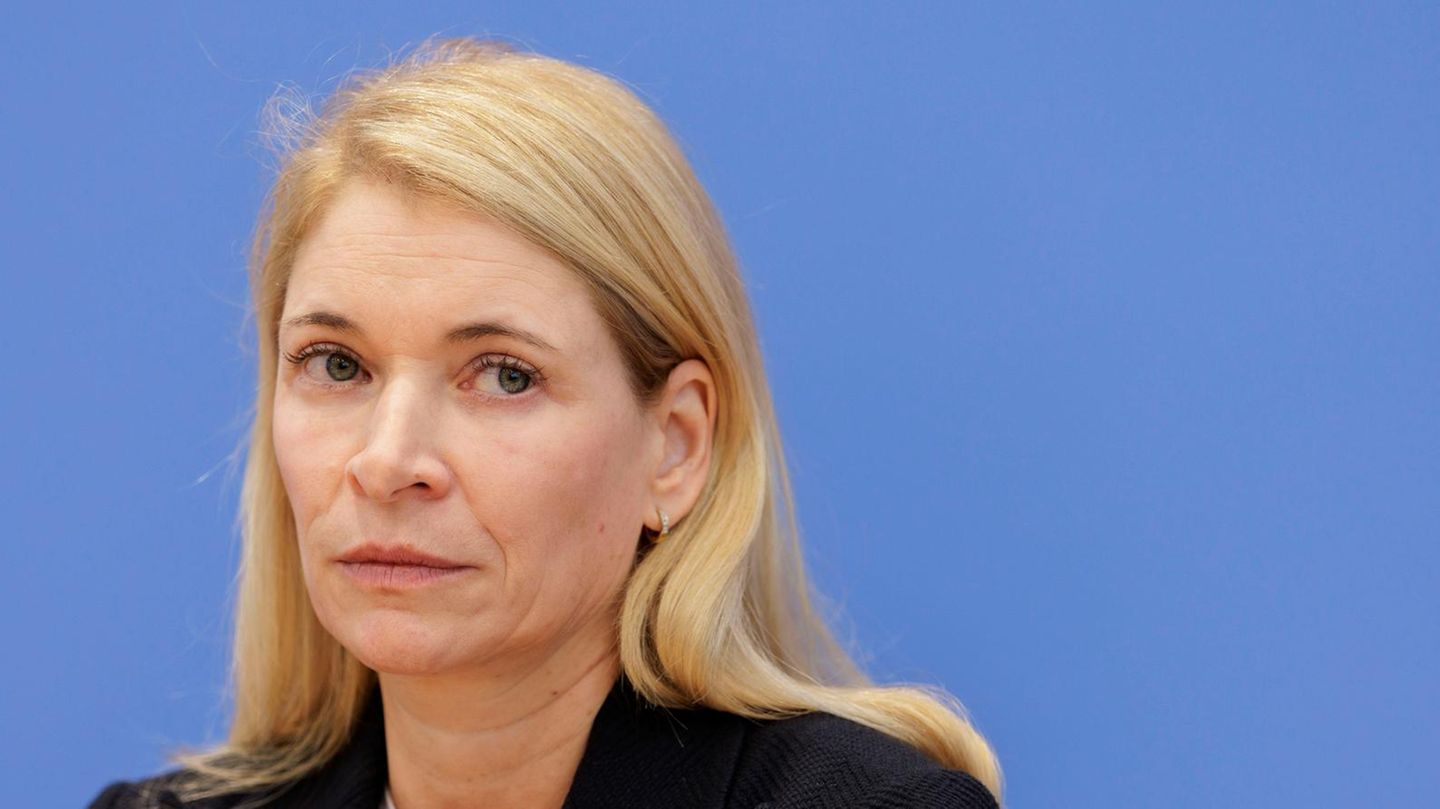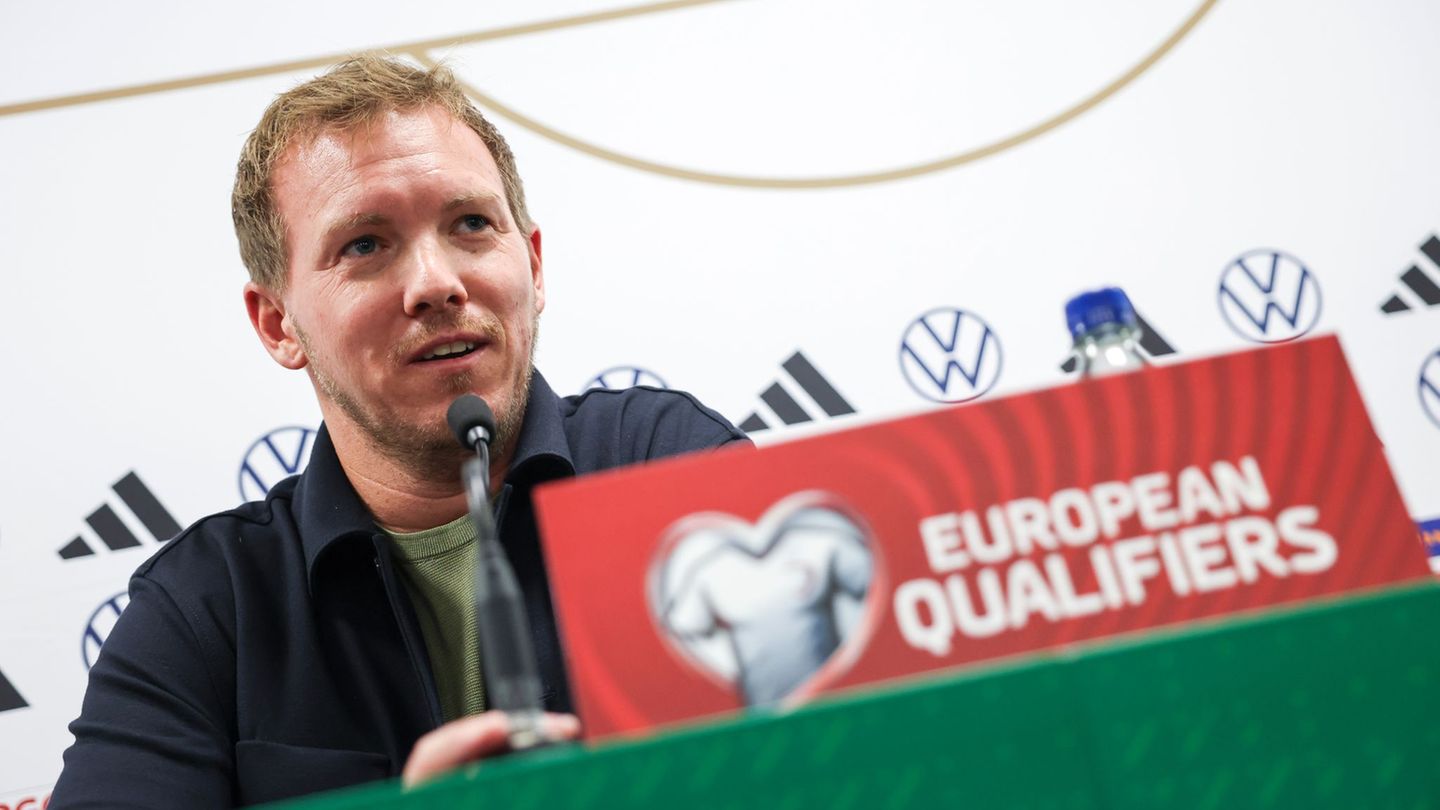Union resistance
EVG does not want to vote for new railway chiefs on the Supervisory Board
Copy the current link
Add to the memorial list
The EVG union wants to vote against the appointment of Evelyn Palla and Dirk Rompf. Dirk Rompf in particular causes resentment – because of his past.
The Railway and Transport Union (EVG) wants to vote on the Deutsche Bahn supervisory board against the designated new CEO Evelyn Palla. That said EVG boss Martin Burkert in Berlin. Palla was recently presented by Federal Transport Minister Patrick Schnieder (CDU) as a candidate for the train chief post.
The trouble of the union is not directed against Palla, but above all against the second desired personnel of the minister: The EVG does not want Dirk Rompf to become the new head of the infrastructure company DB Infrago.
Evg: “The way forward can never lead through the past”
“Professor Rompf was the CEO of DB Netz for six years and is with his spare craze with the guilt of today’s situation,” said Burkert. “Every passenger still feels the effects of its poor balance. This is not a restart.” The Rompf personnel had caused great rejection to far into the railway group.
The meeting of the Group Supervisory Board begins tomorrow. The German locomotive driver (GDL) union, which also keeps a seat on the Supervisory Board, did not initially comment on how it will behave when the new railway chief appeal. While Palla has to be appointed by the Group Supervisory Board, Rompf must be appointed by the DB Infrago Supervisory Board.
Power struggle on the supervisory board instead of harmonious restart
The Group’s Supervisory Board of Deutsche Bahn is equal to representatives of the federal government as a railway owner and the employee side. Both sides each provide nine members. In addition, there is also the chairman of the supervisory board, Werner Gatzer, and his deputy Burkert.
It is currently being legally checked whether a two -thirds or a simple majority are required for Palla’s appointment. If the necessary majority do not come about, the mediation committee comes together – for the first time in the history of Deutsche Bahn.
Rompf was a network boss at Deutsche Bahn
“I can express that we, as the employee representative of the EVG, reject the personnel concept in all. Minister Schnieder wants a restart. But by putting up the new Infrago board member Rompf, he ensures a false start of the new boss. Burkert assumes that Rompf on the DB Infrago supervisory board will also fail on a simple majority.
According to Schnieder, Rompf is supposed to replace the DB Infrago Philipp Nagl. Under his leadership, the years of decline in the rail network were most recently stopped. In addition, Nagl is one of the heads behind the so -called general renovation concept for more than 40 special important routes that Palla wants to continue.
Rompf was a network boss under the then group board member Ronald Pofalla. During this time, the infrastructure was increasingly felled because too little money was invested in receipt. Rompf has been managing director at the IFOK strategy consultancy since 2021.
Restart with the first scratches only hours after the strategy idea
Even if the EVG ultimately does not prevent Palla and Rompf’s appeal, the rejection of both in the supervisory boards is a clear sign. This does not promise anything good for future collaboration: In large reforms, Schnieder, Palla and Rompf will need the support of the EVG.
Dpa
RW
Source: Stern





